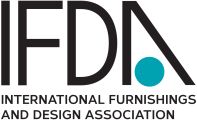Tips for Complying with Privacy Laws While Using Video Surveillance
The affordability of advanced technologies has made video surveillance systems so commonplace that we hardly take notice of them. Nearly everyone recognizes and appreciates the benefits of their use, such as increased safety; and a reduction in theft, vandalism, and violence.
However, there are privacy concerns that must be considered when using them. These laws are governed by state and federal laws, and by common sense. Most importantly, the laws are easy to follow while still enjoying all the benefits of a surveillance system.
The 4th Amendment protects the individual’s right to privacy in situations where they may reasonably expect privacy, such as in a dressing room. When an individual enters a public space where they may be seen and observed, they do not have the expectation of privacy. This is why it is permissible to use video surveillance in public places like in stores and malls, or used in the workplace to cover work areas, such as offices and stock rooms.
Here are the most important things to consider in implementing cameras and cctv into your security system.
- In the home, do not use cameras in places one would expect privacy, such as in the bathroom.
- Never situate cameras with the purpose of videotaping neighbors or with intent to use maliciously.
- Make sure cameras used in public spaces do not cover the entrance to bathrooms, or the ability to record the interior of a bathroom if the door opens.
- Video cameras should not be placed in exam rooms, hotel room or in dressing rooms
Special Considerations in Using Video Camera Systems in the Workplace
Some workplace situations require additional levels of privacy protection, such as in medical facilities and schools where children are present. In medical facilities, HIPPA regulations dictate higher levels of privacy requiring careful placement of surveillance equipment. However, even in complex situations it is still possible to surveillance systems effectively.
Why Not Audio?
Many people ask why audio is not included in video surveillance systems. The laws governing the recording of conversations are much stricter than recording images. In fact, except in very limited situations, Surveillance systems that record audio in public or semi-public buildings may violate federal and state privacy laws and may incur both civil and criminal liability. Short of obtaining the formal written consent of all persons who will be subject to the audio/video surveillance security system, there exists no certain way to employ such a system without risk of civil and criminal liability under federal and state law.
At JM, we are always happy to help with your questions. If you’d like to know more about video surveillance, give us a call today.









